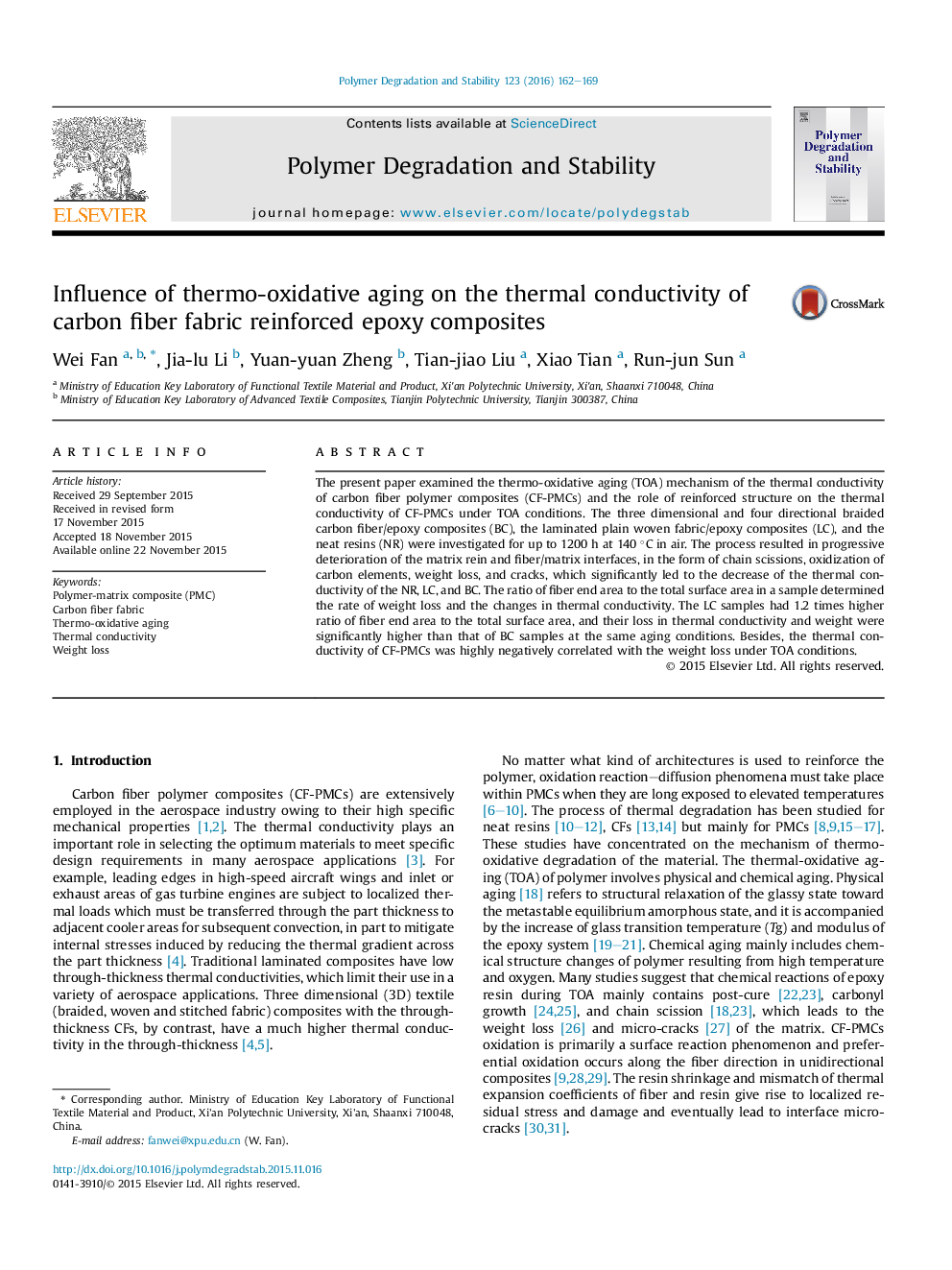| Article ID | Journal | Published Year | Pages | File Type |
|---|---|---|---|---|
| 5201246 | Polymer Degradation and Stability | 2016 | 8 Pages |
The present paper examined the thermo-oxidative aging (TOA) mechanism of the thermal conductivity of carbon fiber polymer composites (CF-PMCs) and the role of reinforced structure on the thermal conductivity of CF-PMCs under TOA conditions. The three dimensional and four directional braided carbon fiber/epoxy composites (BC), the laminated plain woven fabric/epoxy composites (LC), and the neat resins (NR) were investigated for up to 1200 h at 140 °C in air. The process resulted in progressive deterioration of the matrix rein and fiber/matrix interfaces, in the form of chain scissions, oxidization of carbon elements, weight loss, and cracks, which significantly led to the decrease of the thermal conductivity of the NR, LC, and BC. The ratio of fiber end area to the total surface area in a sample determined the rate of weight loss and the changes in thermal conductivity. The LC samples had 1.2 times higher ratio of fiber end area to the total surface area, and their loss in thermal conductivity and weight were significantly higher than that of BC samples at the same aging conditions. Besides, the thermal conductivity of CF-PMCs was highly negatively correlated with the weight loss under TOA conditions.
